Top hydraulic valve block in China introduce,list main products and website if have
One of the top hydraulic valve block manufacturers in China is Ningbo Bisheng Valve Co., Ltd. Their main products include hydraulic valve blocks, hydraulic control valves, and hydraulic manifold blocks.
Ningbo Bisheng Valve Co., Ltd. has been specializing in the research, development, and production of hydraulic components for over 20 years. They have a team of experienced engineers and technicians who ensure the quality and performance of their products.
Some of their popular products include directional control valves, flow control valves, and pressure control valves. Their hydraulic valve blocks are widely used in various industries such as construction machinery, agricultural machinery, and industrial equipment.
Their website is www.bishengvalve.com, where you can find more information about their products, services, and company background. Ningbo Bisheng Valve Co., Ltd. is known for their high-quality products, competitive prices, and excellent customer service.
Overall, Ningbo Bisheng Valve Co., Ltd. is a top choice for hydraulic valve blocks in China, offering a wide range of products to meet the needs of different industries. Their commitment to quality and innovation has made them a trusted name in the hydraulic components industry.
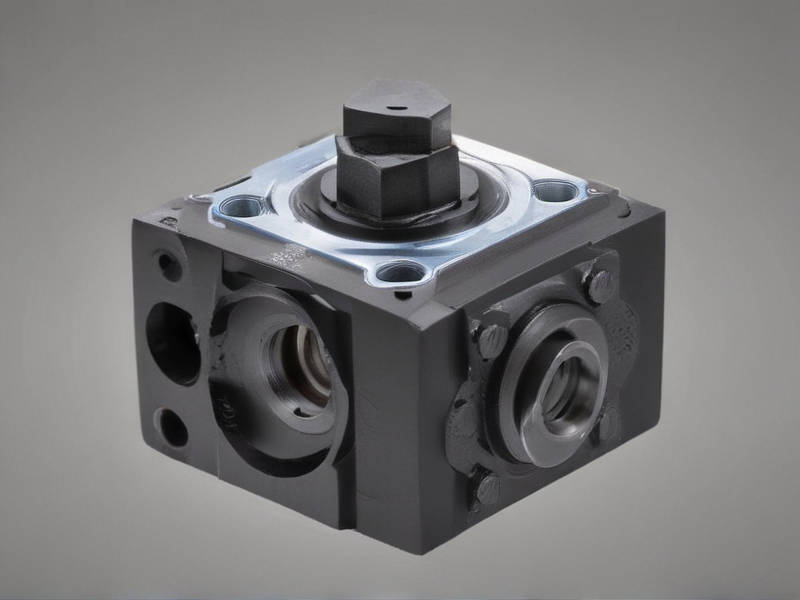
Types of hydraulic valve block
Hydraulic valve blocks are critical components in hydraulic systems that help regulate the flow of hydraulic fluid, control pressure, and direct fluid to specific hydraulic actuators. There are several types of hydraulic valve blocks commonly used in various applications, including:
1. Directional control valve blocks: These valve blocks are used to control the direction of flow of hydraulic fluid in a hydraulic system. They typically consist of multiple valves arranged in a block that can be operated manually, electrically, or pneumatically to direct fluid to different parts of the system.
2. Flow control valve blocks: Flow control valve blocks are used to regulate the flow rate of hydraulic fluid in a system. These valve blocks can help control the speed of hydraulic actuators or prevent rapid pressure spikes in the system.
3. Pressure control valve blocks: Pressure control valve blocks are designed to regulate the pressure of hydraulic fluid in a system. These valve blocks can help maintain a consistent pressure within the system to prevent damage to components or ensure proper operation of hydraulic actuators.
4. Proportional valve blocks: Proportional valve blocks use electronic or mechanical feedback to control the flow rate or pressure of hydraulic fluid proportionally to an input signal. These valve blocks are commonly used in applications where precise control of hydraulic actuators is required.
5. Cartridge valve blocks: Cartridge valve blocks are compact, modular valve blocks that contain multiple valves in a single unit. These valve blocks are easy to install and replace, making them ideal for applications where space is limited or maintenance needs to be quick and efficient.
Overall, hydraulic valve blocks play a crucial role in regulating the flow, pressure, and direction of hydraulic fluid in a system. The type of valve block used will depend on the specific requirements of the application and the desired level of control and precision.
Pros and Cons of Using hydraulic valve block
Hydraulic valve blocks are commonly used in hydraulic systems to control the flow of fluid in various directions and quantities. They offer several advantages such as compact design, easy installation, and efficient performance. However, they also have some drawbacks that need to be considered before using them in a hydraulic system.
One of the biggest advantages of using a hydraulic valve block is its compact design. These valve blocks are usually made of a single piece of material, which makes them smaller and lighter than traditional valve assemblies. This makes them easier to install and reduces the overall size of the hydraulic system.
Another advantage of hydraulic valve blocks is their efficiency. By controlling the flow of fluid through various channels, these valve blocks can optimize the performance of the hydraulic system. This can result in reduced energy consumption, improved productivity, and smoother operation of the machinery.
However, there are also some drawbacks to using hydraulic valve blocks. One of the main disadvantages is the potential for leaks. Since these valve blocks have multiple channels and connections, the risk of leakage is higher compared to traditional valve assemblies. This can result in fluid loss, reduced efficiency, and increased maintenance costs.
Another drawback of hydraulic valve blocks is their complexity. These valve blocks have multiple components and channels that need to be carefully designed and manufactured. This can increase the cost of the valve block and make it more difficult to troubleshoot and repair in case of a malfunction.
In conclusion, hydraulic valve blocks offer several advantages such as compact design and efficiency. However, they also have some drawbacks such as potential leaks and complexity. It is important to carefully consider these pros and cons before deciding to use a hydraulic valve block in a hydraulic system.
hydraulic valve block Reference Specifications (varies for different product)
A hydraulic valve block is a key component in a hydraulic system, controlling the flow and pressure of hydraulic fluid to various components such as cylinders, motors, and actuators. The specifications of a hydraulic valve block can vary depending on the application and requirements of the system.
Key reference specifications for a hydraulic valve block include the maximum operating pressure, flow rate, number of valve positions, port size and configuration, materials of construction, and mounting options. The maximum operating pressure is important to ensure the valve block can withstand the pressure requirements of the hydraulic system. The flow rate specifies the maximum amount of fluid that can pass through the valve block, determining the size of the ports and valves needed.
The number of valve positions refers to the number of different functions or operations that can be controlled by the valve block. Port size and configuration are important for compatibility with other components in the hydraulic system. The materials of construction will depend on the environment and fluid being used in the system, with options including aluminum, steel, or stainless steel. Mounting options can vary, with possibilities for manifold-mounted, subplate-mounted, or cartridge-mounted valve blocks.
Overall, the specifications of a hydraulic valve block are crucial for ensuring optimal performance and efficiency of a hydraulic system. By carefully selecting a valve block with the right specifications for the application, system designers can achieve reliable and precise control of hydraulic functions.
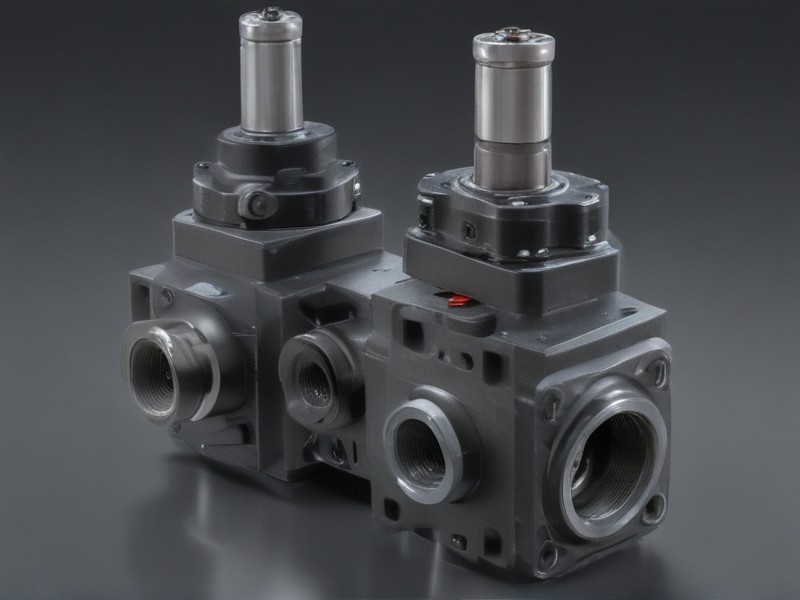
Applications of hydraulic valve block
Hydraulic valve blocks are commonly used in a variety of industrial and mobile applications to control the flow of hydraulic fluid within a system. One of the main applications of hydraulic valve blocks is in hydraulic systems used in machinery such as construction equipment, agricultural machinery, and industrial machines.
In construction equipment, hydraulic valve blocks are used to control the flow of hydraulic fluid to various actuators such as hydraulic cylinders, motors, and valves. This allows the equipment to perform functions such as lifting, lowering, pushing, and pulling with precision and control.
In agricultural machinery, hydraulic valve blocks are used to control the flow of hydraulic fluid to various components such as hydraulic cylinders, motors, and valves. This enables the machinery to perform tasks such as lifting, lowering, steering, and powering various implements with ease and efficiency.
In industrial machines, hydraulic valve blocks are used to control the flow of hydraulic fluid to different components such as hydraulic cylinders, motors, and valves. This allows the machines to perform functions such as pressing, bending, cutting, and lifting with accuracy and consistency.
Overall, hydraulic valve blocks play a crucial role in the operation of hydraulic systems in various applications, providing precise control over the flow of hydraulic fluid to enable the efficient and effective operation of machinery and equipment.
Material of hydraulic valve block
Hydraulic valve blocks are typically made from materials that are durable, corrosion-resistant, and able to withstand high pressure and temperature conditions. Some common materials used for hydraulic valve blocks include:
1. Aluminum: Aluminum is a lightweight and cost-effective material that is commonly used in hydraulic valve blocks. It is also easily machinable, making it a popular choice for manufacturing complex valve block designs.
2. Steel: Steel is a strong and rigid material that is able to withstand high pressure and temperature conditions. It is commonly used in applications where added strength and durability are required.
3. Cast iron: Cast iron is a material known for its high strength and resistance to wear and corrosion. It is often used in heavy-duty hydraulic applications where durability is a priority.
4. Stainless steel: Stainless steel is a material that offers excellent corrosion resistance and is suitable for use in harsh environments. It is commonly used in hydraulic valve blocks that are exposed to moisture or corrosive substances.
5. Brass: Brass is a material that is often used for its excellent thermal conductivity and resistance to corrosion. It is commonly used in hydraulic valve blocks for plumbing and heating applications.
Overall, the choice of material for a hydraulic valve block will depend on factors such as the specific application, the operating conditions, and the required strength and durability. It is important to select a material that is compatible with the hydraulic fluid being used and that will provide long-lasting performance in the intended environment.
Quality Testing Methods for hydraulic valve block and how to control the quality
There are several quality testing methods that can be used for hydraulic valve blocks to ensure their functionality and reliability. One common method is pressure testing, where the valves are subjected to varying degrees of hydraulic pressure to determine if they can withstand the intended load. Leak testing is another crucial method that involves pressurizing the valves and checking for any escaping fluids. Functional testing is also important to ensure that the valves are operating as intended and responding correctly to input signals.
In addition to these testing methods, it is also important to control the quality of hydraulic valve blocks throughout the manufacturing process. This can be done through proper material selection, precise machining and assembly techniques, and regular inspection and testing at each stage of production. Implementing stringent quality control measures, such as using quality management systems like ISO 9001, can help to ensure that the valves meet specified requirements and standards.
To further control the quality of hydraulic valve blocks, it is important to monitor and track key performance indicators, such as defect rates, rework rates, and customer feedback. By analyzing this data, manufacturers can identify areas for improvement and implement corrective actions to continuously enhance the quality of their products.
Overall, a combination of thorough testing methods, strict quality control measures, and continuous monitoring and improvement efforts can help to ensure the quality and reliability of hydraulic valve blocks for various applications.
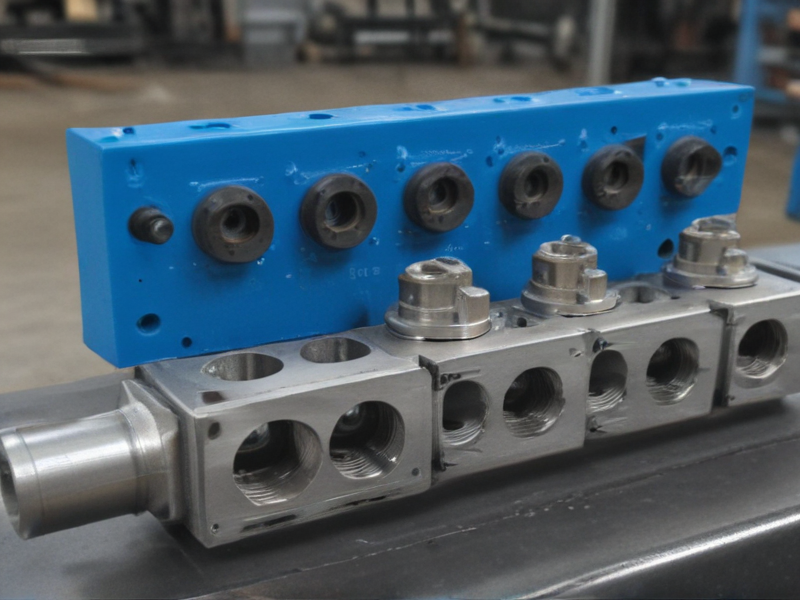
The Work Process and how to use hydraulic valve block
A hydraulic valve block is a crucial component in a hydraulic system, serving as a central control point for regulating the flow of hydraulic fluid. The valve block typically consists of multiple valves, each of which can be individually controlled to direct the flow of fluid to different parts of the system.
The work process of a hydraulic valve block involves using various types of valves such as directional control valves, pressure control valves, and flow control valves. These valves are actuated either manually, electrically, or by other means to control the flow and pressure of hydraulic fluid.
To use a hydraulic valve block, it is important to first understand the system requirements and the specific functions that need to be controlled. By identifying the specific valves needed and their corresponding functions, the hydraulic valve block can be configured accordingly.
To operate a hydraulic valve block, the operator must actuate the valves in the desired sequence to control the flow and pressure of hydraulic fluid. This can be done manually using levers or knobs, or electronically using solenoids or other control systems.
In order to ensure the efficient operation of a hydraulic system, it is important to regularly inspect and maintain the hydraulic valve block. This includes checking for leaks, ensuring proper valve function, and replacing any worn or damaged components.
By understanding the work process of a hydraulic valve block and following proper maintenance procedures, the hydraulic system can operate effectively and efficiently.
hydraulic valve block Importing questions including Cost,Supplier,Sample,Certification and Market
When importing a hydraulic valve block, it is important to consider several factors.
Cost: The cost of the hydraulic valve block will depend on various factors such as size, material, and quality. It is important to compare prices from different suppliers to ensure you are getting the best value for your money.
Supplier: Choosing a reliable and reputable supplier is crucial when importing hydraulic valve blocks. Look for suppliers with a good track record and positive reviews from other customers.
Sample: Before placing a bulk order, it is a good idea to request a sample of the hydraulic valve block to ensure it meets your specifications and quality standards.
Certification: Make sure the hydraulic valve block meets any necessary certifications and standards required in your market. This will ensure the product is safe and of high quality.
Market: Consider the demand for hydraulic valve blocks in your market and assess the competition. Conduct market research to understand the potential for success in importing and selling these products.
In conclusion, when importing a hydraulic valve block, consider the cost, supplier, sample, certification, and market factors to ensure a successful importation process. By carefully evaluating these factors, you can make informed decisions and achieve your importing goals effectively.
How to find and select check reliable hydraulic valve block manufacturers in China
When looking for reliable hydraulic valve block manufacturers in China, there are a few key steps to follow:
1. Research and Identify Potential Manufacturers: Start by conducting thorough research online to identify potential manufacturers of hydraulic valve blocks in China. Look for companies with a good reputation, experience in the industry, and positive customer reviews.
2. Verify Credentials and Certifications: Check if the manufacturers have the necessary certifications and credentials to ensure the quality and reliability of their products. Look for certifications such as ISO 9001, CE, and other relevant industry standards.
3. Request Samples and Quotes: Reach out to the shortlisted manufacturers and request samples of their products. Evaluate the quality, durability, and functionality of the samples. Also, ask for quotes to compare prices and determine the most cost-effective option.
4. Visit the Manufacturer’s Facility: If possible, visit the manufacturer’s facility in person to inspect their production process, quality control measures, and overall manufacturing capabilities. This will give you a better understanding of their operations and the quality of their products.
5. Check References and Reviews: Ask for references from the manufacturer and reach out to their existing customers to gather feedback on their experiences. You can also check online reviews and forums to see what others are saying about the manufacturer.
By following these steps, you can find and select reliable hydraulic valve block manufacturers in China that meet your requirements and standards. Remember to prioritize quality, reliability, and customer service when making your decision, and don’t hesitate to ask questions and seek clarification before finalizing any agreements.
Background Research for hydraulic valve block manufacturers Companies in China, use qcc.com archive.org importyeti.com
There are several hydraulic valve block manufacturers in China that have been recognized for their high-quality products and extensive industry experience. Some of the top companies in this sector include Hengli Hydraulic, Ningbo Hoyea Machinery Manufacture Co., Ltd, and Shanghai DE Pump Valve Co., Ltd.
Hengli Hydraulic, based in Jiangsu Province, is a leading manufacturer of hydraulic components, including valve blocks, cylinders, and pumps. The company has been in business since 1990 and has built a strong reputation for delivering reliable and durable products.
Ningbo Hoyea Machinery Manufacture Co., Ltd is another prominent player in the hydraulic valve block manufacturing industry. The company, based in Zhejiang Province, specializes in the production of hydraulic valves and related components for various industries, including oil and gas, construction, and automotive.
Shanghai DE Pump Valve Co., Ltd is a reputable manufacturer of hydraulic valves and blocks, with a focus on research and development to ensure the highest quality standards. The company has been operating in the market since 1996 and has gained a strong foothold in both domestic and international markets.
Overall, these companies are known for their commitment to quality, innovation, and customer satisfaction, making them top choices for businesses looking for reliable hydraulic valve block manufacturers in China.
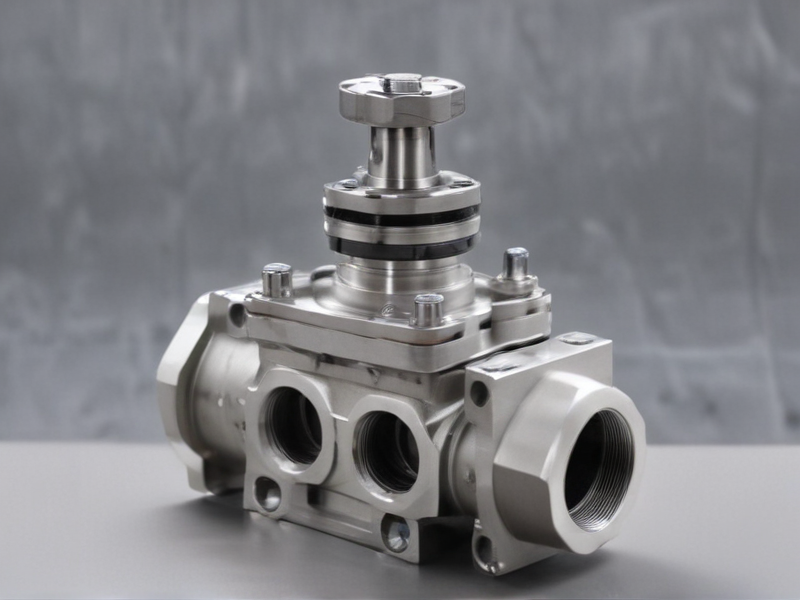
Price Cost Research for hydraulic valve block manufacturers Companies in China, use temu.com and 1688.com
When researching the prices and costs for hydraulic valve block manufacturers in China, it is recommended to use online platforms such as temu.com and 1688.com. These websites provide a wide range of suppliers and manufacturers that specialize in hydraulic valve blocks.
To find pricing information, you can search for specific products or suppliers on these platforms and compare prices across different manufacturers. Additionally, you can also contact suppliers directly through the platforms to request a quote based on your specific requirements.
It is important to consider factors such as the quality of the products, minimum order quantities, and lead times when comparing prices from different manufacturers. Additionally, you may also want to inquire about any additional costs such as shipping, tariffs, or customization fees.
Overall, using online platforms like temu.com and 1688.com can help you gather pricing information efficiently and make informed decisions when selecting a hydraulic valve block manufacturer in China.
Shipping Cost for hydraulic valve block import from China
The shipping cost for importing a hydraulic valve block from China can vary depending on several factors such as the weight and dimensions of the package, the shipping method chosen, and the shipping company used.
Typically, when importing goods from China, the most common shipping methods are by air or by sea. If you choose to ship the hydraulic valve block by air, the cost will be higher but the delivery time will be faster. On the other hand, shipping by sea is generally cheaper but takes longer to arrive at the destination.
In terms of shipping companies, there are several options available such as DHL, FedEx, UPS, and freight forwarders. Each company has its own shipping rates and services, so it is important to compare quotes from different companies to find the best shipping cost for your specific needs.
Additionally, it is important to consider any additional costs such as customs duties, taxes, and import fees that may be incurred when importing goods from China. These costs can vary depending on the value of the goods being imported and the country of destination.
Overall, when calculating the shipping cost for importing a hydraulic valve block from China, it is recommended to research different shipping options, compare quotes from shipping companies, and consider any additional costs to ensure a smooth and cost-effective import process.
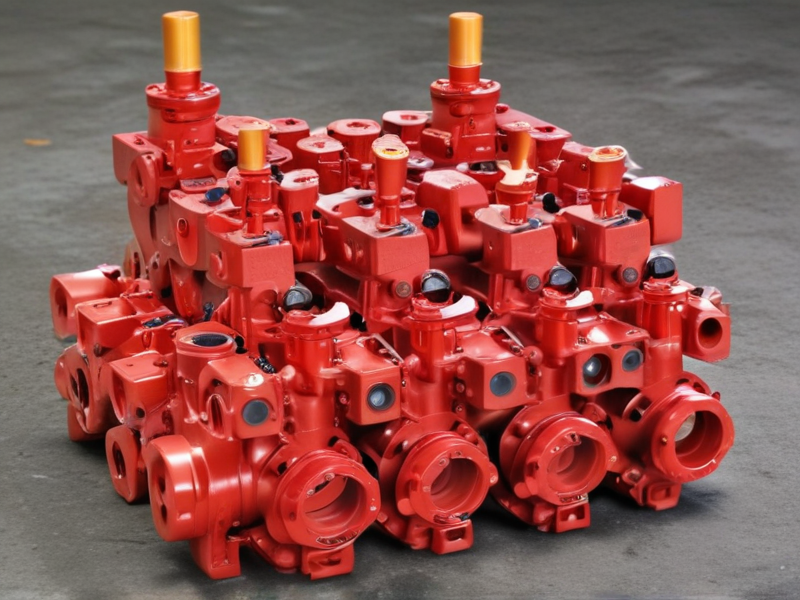
Compare China and Other hydraulic valve block Markets: Products Quality and Price,Visible and Hidden Costs
China has gained a reputation for producing hydraulic valve blocks that are generally lower in quality compared to those from other markets. While China’s products may be more cost-effective, they are often made from inferior materials and may not meet the same rigorous standards as those from other countries.
In terms of price, China’s hydraulic valve blocks are typically cheaper than those from other markets. This cost advantage can be attributed to lower labor costs and economies of scale in manufacturing. However, the lower price point may also reflect the lower quality of the products, as corners may be cut in order to keep production costs down.
Visible costs, such as the upfront price of the hydraulic valve blocks, may be significantly lower in China compared to other markets. However, hidden costs may arise in the form of lower reliability and durability, leading to increased maintenance and repair costs over time. Additionally, the potential for product failures and downtime could lead to significant losses for businesses using Chinese hydraulic valve blocks.
In conclusion, while China may offer more competitively priced hydraulic valve blocks, the trade-off in terms of quality and potential additional costs should be carefully considered. Businesses should weigh the visible and hidden costs associated with purchasing from China against the benefits of higher quality products from other markets. Ultimately, the decision to purchase hydraulic valve blocks from China or elsewhere will depend on the specific needs and priorities of the buyer.
Custom Private Labeling and Branding Opportunities with Chinese hydraulic valve block Manufacturers
Chinese hydraulic valve block manufacturers offer custom private labeling and branding opportunities for businesses looking to establish their own unique identity in the market. With the ability to customize products with your logo, colors, and designs, you can create a distinct brand that stands out from competitors.
By working closely with manufacturers, you can ensure that all aspects of the product, from packaging to quality standards, align with your brand values and image. This can help create a strong brand presence and build customer loyalty.
Additionally, private labeling offers exclusivity, allowing you to control distribution and pricing of your products. This can give you a competitive edge in the market and increase profitability.
With the expertise and experience of Chinese manufacturers, you can be assured of high-quality products that meet international standards. They can also provide valuable insights and recommendations to help you enhance your brand and reach a wider audience.
Overall, partnering with Chinese hydraulic valve block manufacturers for custom private labeling and branding opportunities can be a strategic move for your business to differentiate yourself in the market and drive growth.
Tips for Procurement and Considerations when Purchasing hydraulic valve block
When purchasing a hydraulic valve block, consider the following tips:
1. Define your requirements: Before purchasing a hydraulic valve block, clearly define your requirements, such as the flow rate, pressure rating, number of valves needed, and compatibility with your hydraulic system.
2. Quality and reliability: Look for a reputable supplier that offers high-quality hydraulic valve blocks that are reliable and durable. Consider factors such as material used, manufacturing process, and compliance with industry standards.
3. Compatibility: Ensure that the hydraulic valve block is compatible with your existing hydraulic system, including the type of fluid used, operating pressure, and temperature range.
4. Budget: Consider your budget constraints and look for a hydraulic valve block that offers the best value for money. Avoid compromising on quality for a lower price as this could lead to higher maintenance costs in the long run.
5. Technical support: Choose a supplier that offers technical support and after-sales service to assist you with installation, troubleshooting, and maintenance of the hydraulic valve block.
6. Delivery time: Consider the lead time for delivery of the hydraulic valve block to avoid any delays in your project timeline. Confirm the availability of the product and estimated delivery date before making a purchase.
By following these tips and considerations, you can ensure that you select the right hydraulic valve block for your specific needs and requirements.
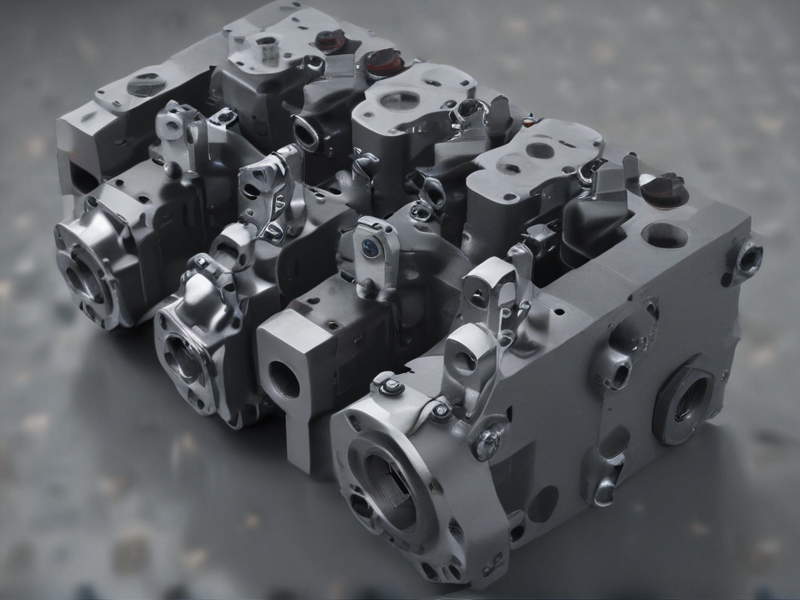
FAQs on Sourcing and Manufacturing hydraulic valve block in China
1. Where can I source hydraulic valve blocks in China?
You can source hydraulic valve blocks in China from various sources such as manufacturers, wholesalers, trade companies, and online marketplaces like Alibaba and Made-in-China. It is important to do thorough research and due diligence before choosing a supplier to ensure quality and reliability.
2. What are the advantages of sourcing hydraulic valve blocks from China?
Sourcing hydraulic valve blocks from China offers several advantages, including competitive pricing, a wide range of options and customization capabilities, high-quality products, and a well-established manufacturing industry with advanced technology and expertise in producing hydraulic components.
3. How can I ensure the quality of hydraulic valve blocks manufactured in China?
To ensure the quality of hydraulic valve blocks manufactured in China, it is important to work with reputable suppliers who have a good track record and positive reviews. You can also request samples for testing and inspection before placing a bulk order. Additionally, conducting factory audits and quality control inspections can help to verify the quality of the products.
4. Are there any risks or challenges associated with sourcing and manufacturing hydraulic valve blocks in China?
Some of the potential risks and challenges associated with sourcing and manufacturing hydraulic valve blocks in China include language barriers, cultural differences, intellectual property issues, quality control issues, and logistical challenges. It is important to address these risks by working with experienced partners and establishing clear communication and quality control procedures.
5. What is the average lead time for manufacturing hydraulic valve blocks in China?
The average lead time for manufacturing hydraulic valve blocks in China can vary depending on the complexity of the design, customization requirements, and production capacity of the supplier. Generally, it can take anywhere from a few weeks to several months to manufacture hydraulic valve blocks in China. It is important to discuss lead times with the supplier and establish a clear timeline for production and delivery.
Why contact sourcifychina.com get free quota from reliable hydraulic valve block suppliers?
Sourcifychina.com offers a convenient platform for sourcing hydraulic valve blocks from reliable suppliers in China. By contacting Sourcifychina.com, you can access a wide network of trusted suppliers that have been vetted for quality and reliability.
Obtaining a free quota from these suppliers ensures that you can compare quotes and negotiate the best deal for your hydraulic valve block needs. This service saves you time and effort in finding reputable suppliers on your own, as Sourcifychina.com has already done the groundwork for you.
The hydraulic valve block suppliers featured on Sourcifychina.com have a proven track record of delivering high-quality products at competitive prices. They offer a range of customization options to meet your specific requirements, ensuring that you get the best value for your money.
By using Sourcifychina.com to connect with these suppliers, you can access a streamlined sourcing process that simplifies the procurement of hydraulic valve blocks. With their expertise in supplier management and negotiations, Sourcifychina.com can help you secure the best possible deal while maintaining product quality and timely delivery.
Overall, contacting Sourcifychina.com for a free quota from reliable hydraulic valve block suppliers is a smart choice for businesses looking to streamline their sourcing process and access high-quality products at competitive prices.
